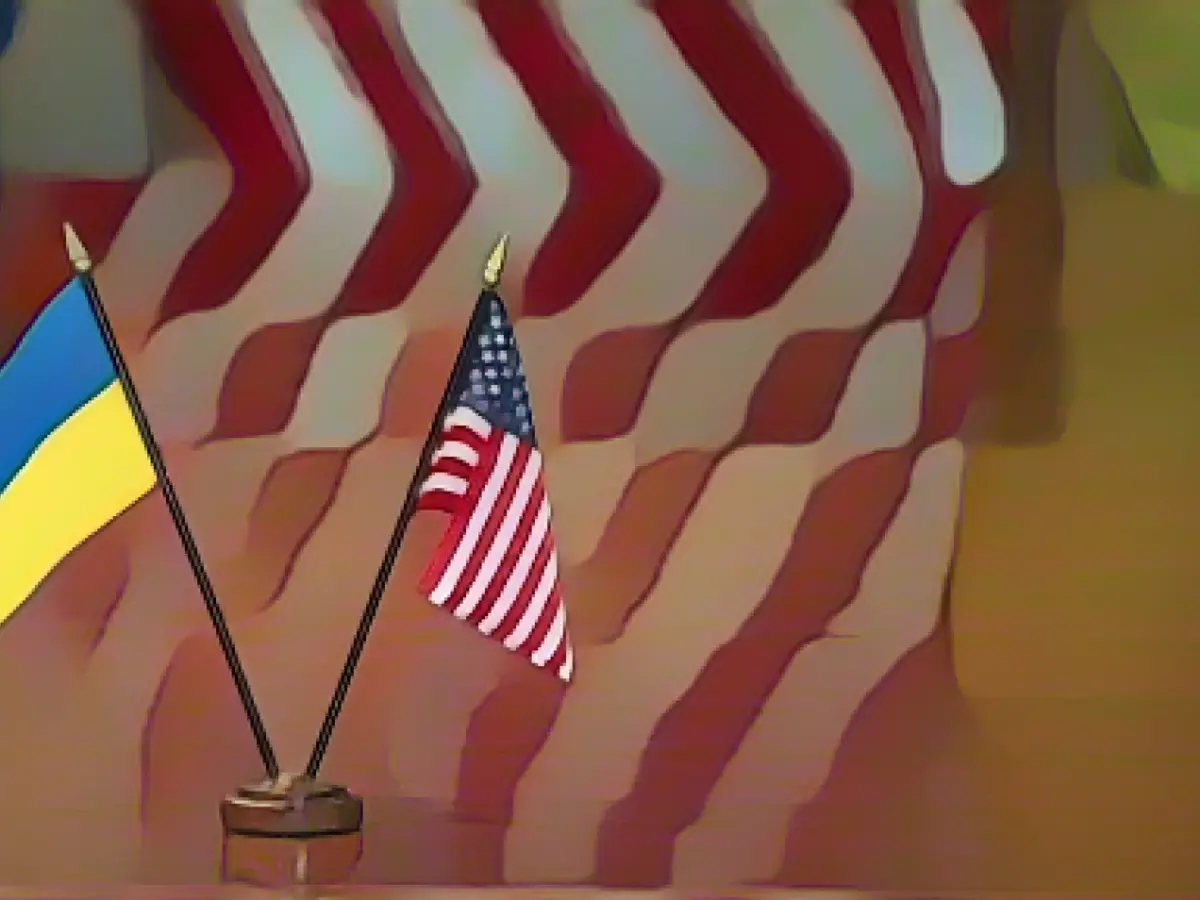Ukraine's Battles and International Support: Amidst Financial Uncertainty
As Ukraine prepares for more battles, the USA and the G7 nations offer military aid and assistance. However, an substantial financial commitment from Washington for Kyiv remains elusive. President Biden implores Congress to approve new aid, stating, "This can't wait. Congress needs to authorize additional funding for Ukraine before heading on break – it's that simple."
Ukrainian officials, led by Andriy Yermak, travel to the US to engage with partners, aiming to bypass potential aid delays. Recently, US Defense Secretary Lloyd Austin met with Ukrainian counterpart Rustem Umjerow, discussing the conflict and the necessity of continued aid.
President Volodymyr Selensky proposes joint arms production with the USA, suggesting collaboration in weapons, armored vehicles, drones, and equipment maintenance. This aim is to bolster Ukraine's defense against Russian aggression, an initiative currently undertaken with Poland, Germany, and the UK.
Domestic political disputes in the U.S. Congress postpone the release of new aid funds to Ukraine. Republicans voice concerns over border security and express doubts regarding Ukraine support.
Additional US Military Aid
Despite these challenges, the US government announces a new military aid package worth up to $175 million in weapons and equipment. The aid package, comprised of previously approved Congressional funds, faces opposition from the majority of Republican senators.
G7 Restricts Russia's Diamond Trade
The G7, in response to Russia’s aggression, plans to limit rough diamond imports from Russia starting in 2024. By restricting Russian revenues from this industry, countries such as the USA, Japan, Germany, France, Italy, and the UK seek to undermine Moscow's financial support for military operations. The EU also intends to impose similar diamond trade sanctions.
Russian President Vladimir Putin appoints several generals to key positions within the army and security forces, elevating experienced commanders whose tactics have faced criticism due to high army losses in Ukraine.
China-EU Summit on Ukraine
China and the EU will hold a summit in Beijing to exchange views on the international situation, including Ukraine. Despite China's disapproval of Russia's nuclear threats, it remains an ally to Moscow, posing a challenge for European diplomacy.
The EU seeks to influence China in an attempt to sway Moscow's stance on the conflict. However, China remains committed to its alliance with Russia.
Insights
To secure a consistent source of financial aid for Ukraine, the US may explore alternative financing mechanisms or use existing legislative tools such as the REPO Act and the Ukraine Democracy Defense Lend-Lease Act of 2022. Additionally, loan-based funding mechanisms supplemented by the PDA and USAI could provide a more reliable source of support for Ukraine's defense efforts.
Meanwhile, engaging in critical minerals-for-aid exchanges with the USA could secure continued support. Moreover, focusing on humanitarian crises and the economic impact of aid suspensions can build public pressure and bipartisan support.
Equally important is leveraging the generational divide and party dynamics within the Republican caucus, as well as international pressure and diplomacy, to progress aid for Ukraine. Engaging with key Republican leaders such as Senator Mitch McConnell can also help find compromises that address Republican concerns.







